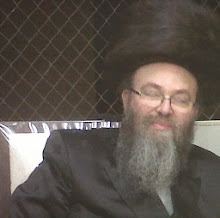Since I have mentioned on the previous post that the appropriate night to have marital union is the night of Shabat, I decided to expand on the subject with two additional posts.
The Kabbalah asks: “In what are human beings distinguished from the horse and the mule? By sanctification and self-perfection. Hence the marital intercourse of human beings should be at fixed times, that they may concentrate their thoughts [of Torah] on cleaving to the Holy One, blessed be He” (Zohar III:49b, Tazria) with the kavanah of V’yehi noam Hashem Elokeinu aleinu u’ma’aseh yodeinu konenah aleinu, um’aaseh yadseinu koneneihu, “May the pleasantness of Hashem our G-d be upon us, and may the work of our hands prosper” (Tehillim 90:17). And what is the time of the day that they may have marital union? Our Sages answer that, “It is the derech eretz [proper conduct] that intercourse should be at night” (Talmud, Ketubot 56a). And regarding the frequency, it is known that ‘man of faith’ have marital union with their wives “all Fridays, on the Shabbat nights” (Ibid. 62b; Orach Chayim 280:1) – certainly a great mitzvah. Note that, although the halachah permits relations occuring on the other nights, ours Sages insist in the rigour of fulfilling this mitzvah only on the holy nights of Shabbat (see R’ Eliyahu de Vidas zt”l, Reshit Chochmah, Sha’ar HaKedusha §16) and on the night of the woman’s immersion on the mikveh etc., unless this frequency is not sufficient in order to avoid machshavot zarot and equally strange behaviors (see Kitvei Ari”zal).
Now, why is it so important to fulfill this mitzvah on the nights of Shabbat? In fact, there are great mysteries regarding the origin of zivugim (holy unions) on Shabbat, the time when the Hole One unites with the Shechinah. These celestial unions cause blessings to descent from above in order to nourish the days of the week. Indeed, they are put into effect both on the spiritual and physical domains. Kabbalah explains that, on each and every Shabbat night "occur zivugim which are initiated [and awakened] by the malachim (angels). Through these zivugim, spiritual answers of beneficence from the levels above them are elicited… Therefore, we are allowed to engage in conjugal relations on that particular night” (the Ari”zal, Sha’ar HaPesukim, Pinchas). The reason these zivugim are awakened by malachim is the manner Hashem has established the Divine plan through which His blessings are channeled and thus brought to all of Creation - including the more inferior degrees (i.e., our physical world). Marital unions on the night of Shabbat emulate the zivugim (occurring on the Partzufim) that are awakened by the angels. Hence, the vital importance of fulfilling this mitzvah in the exact manner described - to bring great blessings to the couple and the world at large. However, even though it is still Shabbat, the daytime (of Shabbat) is not permitted for marital unions, for during the day, “we need to awaken the celestial zivugim which elicit a flux of neshamot [to the world]” (ibid. Ari"zal). This means that, at night, our marital unions have the power to emulate the celestial zivugim, which are already occurring, but we cannot initiate them. We can channel the shefa (of blessings) through this emulation of the malachim while it occurs on Shabbat at night. During the period of Shabbat day, we are the ones that need to awake the zivugim through our avodat Hashem (e.g., in our study of Torah, holy seudah, etc.) - for presumably in this period of the day, the angels do not do any awakening! On the other side, when we put into effect these unions, we cannot channel them, for in order to do so we would need to stop the (described) holy activities to then engage in marital unions (which when emulate the zivugim of the angels, can truly channel down the shefa). This would leave us without anything to channel, to wit, no blessing would result from the conjugal act. This is obviously contrary to the described kavanah and this mitzvah’s purpose of procreation, as we would be left out of blessings, chaz v’shalom.
